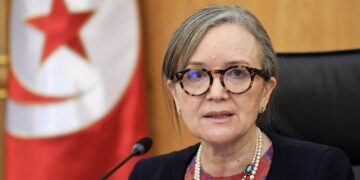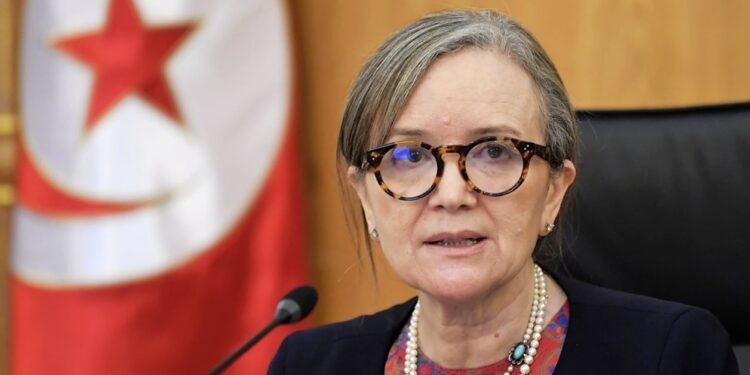By John Ikani
Tunisian President Kais Saied has dismissed Prime Minister Najla Bouden, who made history as the first woman to lead the North African country’s government.
The announcement came through a video released by the presidency on Tuesday evening, but no explanation was provided for her removal.
Without delay, Saied appointed Ahmed Hachani to replace her.
Interestingly, Hachani is relatively unknown to the general public, having previously worked at the Tunisian central bank and studied law at the University of Tunis, where President Saied himself taught, as evident from Hachani’s Facebook profile.
Following his appointment, the new head of government was promptly sworn in before the president, as seen in the video released by the presidency.
Notably, Bouden was initially appointed by President Saied on October 11, 2021, about two and a half months after he granted himself sweeping powers by dismissing the former prime minister and suspending the parliament.
Since then, Saied has been ruling by decree, following a constitutional amendment through a referendum in the summer of 2022, which significantly curtailed the powers of the parliament and granted the president’s office unlimited authority.
The political landscape has been shaped by a new assembly that came into power in the spring of 2023 after legislative elections at the end of 2022.
However, the elections were marred by opposition party boycotts and low voter turnout, at around 10%. In recent months, the president has been dismissive of various ministers, including the foreign minister, without providing reasons.
Over the past year, around 20 opposition, media, and business figures have faced imprisonment in a series of arrests, including Rached Ghannouchi, the leader of the Islamist-inspired Ennahdha party, who is a prominent critic of the president.
Saied has branded them as “terrorists” and accused them of “plotting against state security.” Amnesty International has condemned this roundup, labelling it a “politically motivated witch hunt.”
Ennahdha has dominated coalition governments since the 2011 democratic revolution that led to the ousting of dictator Zine El Abidine Ben Ali and marked the start of the Arab Spring uprisings in the region.
Adding to the complexity of the political crisis, Tunisia faces severe economic challenges. The country’s debt burden stands at 80% of GDP, while economic growth remains sluggish, at just two percent.
In addition, poverty levels are increasing, and unemployment remains critically high, at 15%.




































